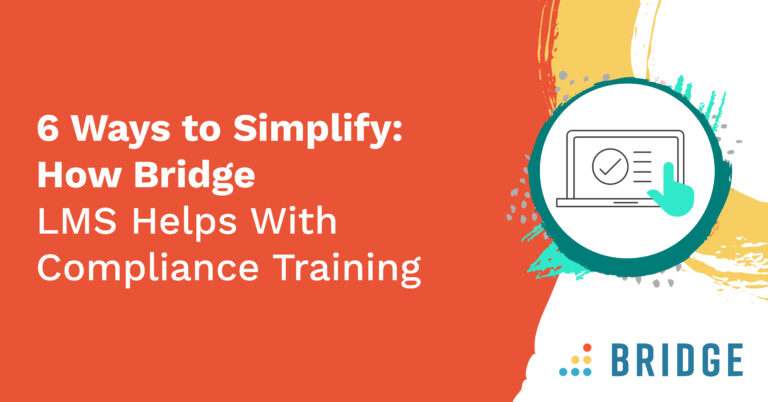In the first post in our “How to Develop Employees in the Changing Face of Work,” series, we outlined the perfect storm of factors that make employee development a whole lot harder these days. Not surprisingly, one is the epic generation gap.
Obvi, having a multi-generational workforce is nothing new… Yet #worklife was a little less complicated when boomers were first entering the job market. Fast forward to today, and the generational differences can be seen and felt in every aspect of work.
Here’s a breakdown of the generations you’ll need to manage in the modern workplace. Understanding what makes them tick (or swipe or scroll) is half the battle in their development.
Gen Z (born 1997 – 2014)
While most organizations are still trying to demystify millennials, an even younger, more diverse, and (gulp) larger group is hitting the workforce—Generation Z. They may look and speak like millennials, but don’t dare assume they’re younger clones of their millennial counterparts.
Yes, they are tech-savvy like the “Me Generation,” but they’re also more career-minded. Having grown up during the Great Recession, they value job stability and advancement opportunities over higher pay or meaningful work.
Gen Z Development Takeaways:
- Work environment – flexibility is very important to Gen Zers, so allow some levels of remote work and more relaxed office hours. These young employees have no reservations about logging in and crossing things off their to-do list while their managers are sleeping tightly at 2 am.
- Performance management – set measurable goals and a clear, transparent way to track them. Competitive Gen Zers pride themselves on their productivity and would like to be reviewed as such. They prefer to be responsible and accountable for their own actions vs. those of a team as a whole.
- Feedback – ongoing feedback is a must for this group. Contrary to stereotype, 51 percent of Gen Zers prefer face-to-face communication with managers. So, in between 1:1s, be sure to give them props in person whenever possible.
- Training – a lifetime of instant gratification has programmed Gen Zers that yes, they can have it now. Make sure any learning materials can be accessed at the time of need and other training can be completed on company time. Many Gen Z employees may have skipped college and trade school altogether, meaning they probably have some transferable skills and job-centric competencies that they need help with right out of the gate.
Millennials (born 1981 – 1996)
As millennials now have to share the spotlight with Gen Z, there are some behaviors that are truly “Me Generation.” To be fair, they should be defined by more than their selfie obsession and participation trophy-riddled childhoods.
Growing up with social media, wifi and smartphones, these digital natives are always connected to work and play. And unlike the generations before them, they have big expectations from employers. They want purpose in their work and demand ongoing career development, even placing it higher than salary.
Millennial Development Takeaways
- Work environment – millennials prefer to blend life and work so they’re always “on” and need employers who can embrace it. This flexibility is often more about taking some “me time” during the day than managing family obligations.
- Performance management – give them some structure and parameters on a project as well as the freedom to solve the challenge their way. And because 95 percent of them work harder when they know where their work is going, seeing how they fit into the big picture is crucial.
- Feedback – if millennials had their way (and hey, why shouldn’t they?), they’d receive some level of feedback from managers on the daily. As a manager, this could be a real time suck. Opt for micro-feedback sessions in between those 1:1s—text or Slack messages will do the trick.
- Training & development – allow millennials many avenues for self-directed development using video and microlearning. And make way for this next generation of managers by grooming them with the training they need to grow in areas that extend well beyond their current title. A whopping 75 percent of millennials want a mentor relationship, so round up some all-star Gen Xers and everyone can learn from each other.
Gen Xers (born 1965 – 1980)
Dubbed “America’s Neglected Middle Child” by Pew Research, Gen Xers are typically independent and cynical (for good reason). Historically, they’ve been slower to receive promotions than millennials or even boomers, yet they remain more loyal.
Now in their 40s and 50s, many of your organization’s Gen Xers will be managers. That doesn’t mean they don’t need ongoing development. They actually need it most to help them manage and understand younger generations who have very different styles than the “let me do my work and go home” mentality they possess.
Gen Xers want to be mentors, too, which is a perfect complement to millennials who crave mentors. Pair up employees from these two generations for a successful mentorship where Gen X helps with work and millennials help with tech.
Gen X Development Takeaways
- Work environment – Gen Xers spent the early days of their careers when 9-5 was still the traditional model. While they appreciate some flexibility, they don’t necessarily expect remote work every day.
- Performance management – often misunderstood as jaded when they’re really independent, Gen Xers need to hear the broad strokes of what’s expected of them, not necessarily a play by play. They are more likely to be focused on their own individual success over the teams.
- Feedback – a collection of independents, these employees are perfectly fine with less-frequent check-ins with their managers. As managers, they need to go against their preferred management style when dealing with younger employees and still provide them with ongoing, 1:1s and feedback.
- Training and development – yes, Gen Xers value training, and often invest their own time in learning and sharpening their skills. And 20 percent of Gen Xers prefer external coaching over coaching from their manager.
Baby Boomers (born 1946 – 1964)
While these more “seasoned” employees are moving closer and closer to the day when they can permanently clock out, that doesn’t mean they don’t deserve to be encouraged to do their best work. As more and more Americans need to work longer, being in their 60s doesn’t mean they’re anywhere near retirement.
Having climbed the ranks back when the corporate ladder was a thing, boomers take great pride in their work and are competitive in getting ahead. They are not scared of hard work, and often criticize younger generations as slackers.
Boomer Development Takeaways
- Work environment – old-school workaholics, boomers typically want to put in the hours at the office, compared to millennials and Gen Z who prefer flexibility and remote work.
- Performance management – these goal-oriented employees do well with new challenges and enjoy being competitive. Allowing them to track their progress and reflect on achievements is key for performance management (but they are probably tracking them on their own, too.)
- Feedback – boomers are typically more reserved and don’t feel the need for constant check-ins with their managers. However, managers should still keep the lines of communication open and check in regularly.
- Training – boomers have longer attention spans, and according to a recent study, they prefer more traditional means of training, like instructor-led courses. They may be a little slower to adapt when it comes to new technology, but don’t underestimate or write them off. Just give them the time and the tools they need to learn on their terms.
It’s a little dizzying to think about catering to the development wants and needs of such a diverse group of employees. The good news is, research has shown these polar opposites can create synergy (air quotes here) in the workplace, and actually shine at decision-making.
Generational differences are just one way to skin the (Grumpy) Cat when it comes to developing diverse employees. In our next post in our “Managing Employees in the Changing Face of Work” series, we’ll cover four workplace personality types you’ll no doubt encounter in your organization—and how to develop and manage them all.
Until then, you can learn more about minding the age gap in our infographic, “Generational Differences in Workplace Loyalty,” and our e-book, “The Future of Work: 10 Essentials for Winning Employee Development.”



